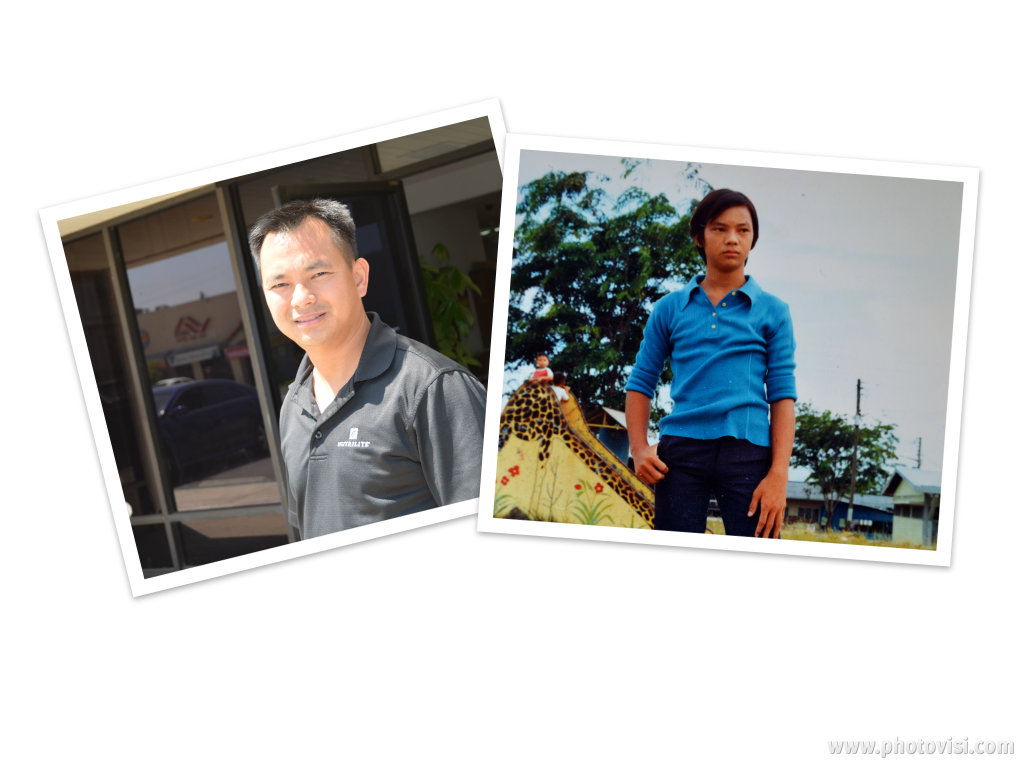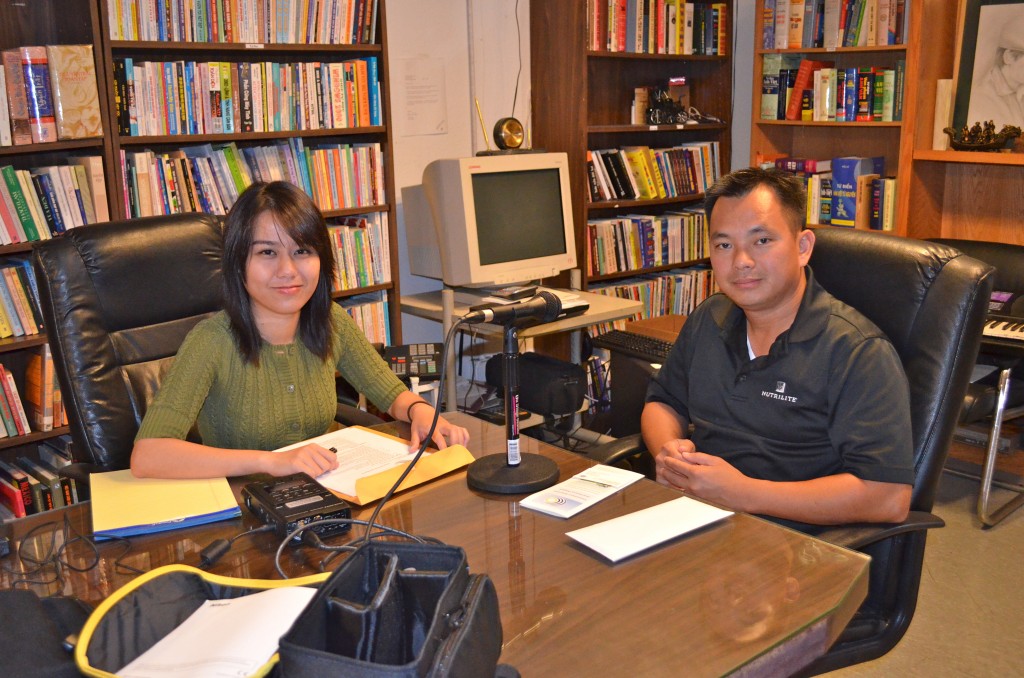From Vietnam to Refugee Camp and America
When I first signed up for this project, I just wanted to be “behind the scenes.” However, I had a chance to conduct my first interview with Mr. La Quoc Tam, and I found that I like it a lot. We conducted this interview in a conference room of the Vien Dong Daily News, in Little Saigon. I learned a lot, in this interview: the importance of education and the lives of Vietnamese people before, during, and after 1975. Moreover, I learned more about the hardship that the earlier generations, “the boat people”, had gone through. Tam is currently a senior scientist working in the laboratory for a vitamin company. He is the middle child in a large family. He and his family are known as “boat people”. His family was divided when they left Vietnam. As a result of having such a large family, his parents had to separate their children into two or three groups to go to the refugee camps. His father let his older brothers and sisters go first, and Tam and his younger siblings left a couple years later. He also discussed about the destitution of his family and his mother’s struggle to provide for her children, while his father was in a reform prison. When asked if he could share some of his childhood memories in Vietnam, he said: “the only thing I remember is being carefree and the happiness, which I shared with my friend at school.”
Tam and his family arrived California, but they did not settle there. He only moved to Southern California during recent years. He and his older sibling worked hard to become United States citizens and to sponsor the rest of their family to come to America. With great emotion, Tam explained his feelings about sponsoring his family to the U.S.: “The joy to have one’s family whole again is indescribable.” He also talked about the difficulty in adjusting to the new environment due to the language barrier. After high school, Tam attended a four year college and pursued an engineering major. His reason for choosing engineering as his major was because of the job market’s demand for this field at the time. He thought that people of his generation chose to study a major based on its job availabilities in the market, rather than study anything out of passion. He said, “I needed to have a job right after I finished school, because I need to help my family.” He discussed the importance of education to the Vietnamese culture, and the difficulties, which older generations are facing, of preserving and passing down the Vietnamese culture to their children and grandchildren. He is facing the same obstacle with his two daughters; however, he found that Little Saigon has helped him introduce the Vietnamese culture to them. He said, “Now, they start to accept the culture more and willing to ask more about it.” The VAOHP is designed to preserve and pass on Vietnamese-American’s culture.

I ask Tam to describe some characteristics of Vietnamese culture and its people, he said: “The best thing about Vietnamese is respect. We respect our elderly and superior. We are also diligent workers.”

By Tram Vo
Please check back for updates on the UCI Libraries’ website with full audio interviews, photos, and transcripts!
